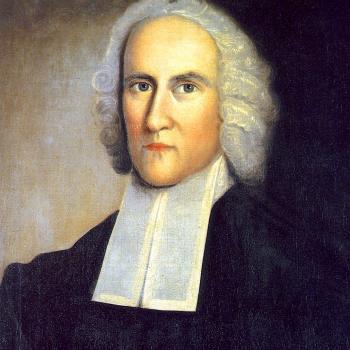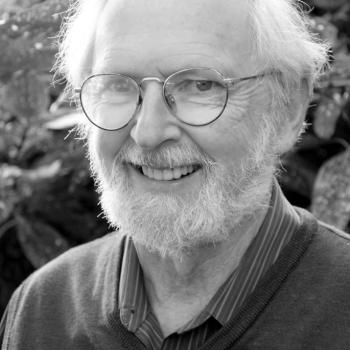Our church recently hosted a presentation by Owen Strachan, who teaches theology and church history at Boyce College in Louisville, Ky. Strachan is the co-author, with Douglas Sweeney (Strachan’s doctoral mentor), of the five-volume Essential Edwards Collection (2010). I happily came away from the session with a copy of one of these volumes, Jonathan Edwards on True Christianity. For those looking for a brief, practical introduction to Edwards, and the relevance of his ideas for local churches today, I can’t think of a better place to start.
I inhabit a world of academic historians writing on religion, and know well the challenge of bringing academic expertise to a broader audience, including the challenge associated with making religious history helpful to the church. Too often, academic scholarship languishes in expensive books with inaccessible prose. Meanwhile, popular non-academic books, including those written for the churchgoing market, can easily slip into hagiographic (biography of the saints) mode, in which the subjects seem dubiously angelic.
So it was with great satisfaction that I read Jonathan Edwards on True Christianity, which features both reliable history (Sweeney, of Trinity Evangelical Divinity School, is one of the country’s leading experts on Edwards and his followers) and practical, accessible commentary on Edwards’ relevance today.
This particular volume tackles the subject of nominal Christians, a problem as pressing in Edwards’ day as our own, and one that eventually helped get Edwards kicked out of his Northampton, Massachusetts church. New England in Edwards’ time was the most heavily Christian region of the colonies, but a hundred years after the founding of Massachusetts, many apparently figured that they were Christians because they grew up in a Christian colony, as part of a Christian [British] empire, and because they had been baptized as infants and faithfully attended church. Edwards, along with his fellow revivalists in the Great Awakening, exposed these fallacies and insisted that true Christians must have their hearts transformed by God’s grace, through the power of the Holy Spirit.
One of the charms of Sweeney and Strachan’s approach is that they do not set up Edwards as a perfect pastor, nor as one who met with universal success. Instead, Edwards struggled mightily to keep nominalism at bay, and found that nothing he did could ultimately stop it.
Edwards’ spiritual exemplars, such as missionary David Brainerd, struggled mightily too. Brainerd particularly wrestled with a fatalistic sense of futility in his ministry and personal life. Yet both men found that faithfulness had its rewards, and, as Edwards would remind us, faithfulness accrues to God’s glory, the very point of our existence.
Another of the book’s charms is its brevity — 149 pages of text, liberally peppered with the words of Edwards himself. Readers wanting the definitive biography of Edwards should turn to my doctoral advisor George Marsden and his magnificent Jonathan Edwards: A Life.
Those wanting to dive into Edwards’ own writings or sermons should consult A Jonathan Edwards Reader or The Sermons of Jonathan Edwards (both from Yale University Press, the latter co-edited by Sweeney). Strachan and Sweeney’s four other books examine Edwards on topics such as beauty, and the good life.
In any case, these selections should give any curious pastor or layperson an excellent start on Edwards, who should be at the top of any must-read list for American religious history.
















